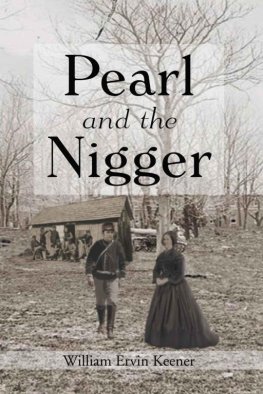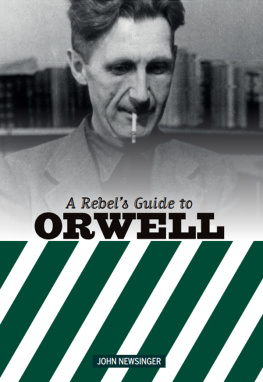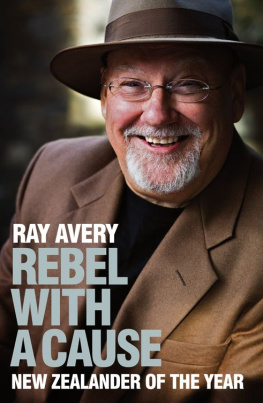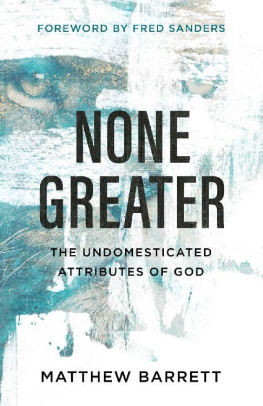THE MAN WHO WROTE THE DIARY
Edmund DeWitt Patterson, my grandfather, would have called himself a very ordinary man. He displayed no extremes of character, habit, or appearance but was so well endowed with the old-fashioned virtues of honesty, fairness, good judgment, and respect for others that in his later years he was often spoken of as the best loved man in his community.
He was born in Lorain County, Ohio, March 20, 1842. His parents were New Englanders who came to Ohio from Massachusetts and Connecticut in the great westward migration of the early 1800's. While their lives would not be considered particularly hard by the standards of the times, the country where they lived was not long out of the frontier, and survival in both the physical and economic senses was a matter of primary concern. Even so, education held a place of great importance in their lives. Grandfather's father was a farmer during the summer and a school-teacher in the winter, and his mother's family enjoyed local renown for scholarship.
His mother died when he was ten years old and he and his brothers and sisters were separated for a time. In an autobiographical sketch written many years later, Grandfather Patterson wrote: After my Mother's death I went to live with the family of an uncle [a physician] but spent much time at my Grandfather Brooks. Though my Father's house had always been a stopping place for Methodist preachers I had never been accustomed to such strict observance of the Sabbath as was required by my grandfather. He would not permit me to whittle on Sunday and I came near to losing one of my most precious treasures, a pocket knife, because in a moment of forgetfulness I took it out of my pocket and began whittling on Sunday.
He attended public schools until he was seventeen at which time he attempted to make his way in the world as a salesman of book and magazine subscriptions. It was this adventure that took him into the South, first to Tennessee and then into northern Alabama. Of this enterprise and his subsequent decision to join the Confederacy he later wrote:
My three months work as a Book Agent had thoroughly satisfied me that I would never make a success in that line; my employers being of the same opinion were glad to release me as well as to be released from our contract.
Feeling the sting of my failure to sell books, I determined I would not return home to be laughed at for my wild goose chase in coming South, and began to look about to find something to do. About that time the people on Second Creek just above Waterloo, [Alabama] wanted a teacher for their school. Under the law, the directors had no right to contract with one who had not been first examined by the County Superintendent and given a certificate. I wished to secure the school, the County Superintendent lived in the Eastern end of the County more than forty miles away, and I doubted my ability to stand the required examinations, so learning that the Superintendent would be in that neighborhood in about a month to conduct his examinations, I proposed to the directors of the school that I would teach the school until he came and if I failed to obtain the certificate I would quit the school and charge nothing for my services.
The proposition was accepted and I began at once. Before the month was out I had reviewed my studies and had no difficulty in passing the required examinations, and my school continued seven and a half months, when a position was offered me as clerk in a store at Waterloo.
By this time, politics was the all-absorbing topic and persons from the North were looked upon with suspicion, so that I decided to return to Ohio, but before I was ready to start I had a personal difficulty arising out of a political discussion caused by an insinuation that I might be a spy, which caused me to decide to remain.
The war came on and in May 1861 I enlisted in a company called the Lauderdale Rifles, afterwards Company D, 9th Alabama Infantry. In the organization, I was elected 4th Corporal. We received marching orders on the 28th of May. June 3rd we left Florence, Alabama, for Richmond, and I became a part of the 9th Alabama Regiment, with C. M. Wilcox, afterward a Major General, as First Colonel. We were sent to the front July 14th, 1861.
At the time of Lee's surrender at Appomattox, my grandfather had been returned to Virginia in an exchange of prisoners, and he waited about Richmond with a group of his friends for some time, expecting to be provided transportation home. When it became clear that no such transportation was forthcoming, he and his friends walked home to Alabama, a distance of some six hundred miles.
Upon his return, he was invited by General Edward O'Neal (later governor of Alabama) to live with the O'Neal family and to read law in the general's office at Florence. A little later he went to Baltimore, Maryland, and continued his study of law there, returning to Alabama toward the end of 1868. In the following year he married Eleanor Mildred McDougal of Savannah, Tennessee, and entered into the practice of law in partnership with his father-in-law, Archibald G. McDougal. He served as clerk and master of chancery court for twelve years, was elected to the state Senate for one term, then was elected judge of the circuit court. He held this post for eleven years, resigning because of ill health and returning to private practice. He served for several years as president of the Bank of Savannah.
In our family, Grandfather's journal of the Civil War was referred to as The Diary. When the war ended and he returned to Alabama, he preserved the diary but took no interest in it. (Several years later, urged by my grandmother, he reluctantly put it in chronological order.) This disinterest was in keeping with his attitude toward the war. He considered it a tragic mistake and for the rest of his life did not care to discuss it or his experiences in it. He would have no part in any effort to glorify or commemorate the lost cause or in the reunions of old soldiers which were frequent and popular during his later years.
Two seemingly contradictory exceptions to his general attitude toward the war were his free admittance that he had been a rebel and had never been reconstructed, and his refusal to be reconciled with his family in Ohio for many years after the war. On this latter point, one difficulty was that his family took the stand that grandfather's action in joining the Confederacy was not only treason to his country and to his family, but also foolish, and he refused to agree. Another point that probably counted at least as heavily as this with my grandfather, was his conviction that his family had knowingly permitted him to suffer near-starvation in prison while they were living in comfort and plenty only a few miles away. By about 1890 a workable truce had been negotiated with his family, and in the years that followed they became good friends again, but it is not certain that he ever completely forgave them for letting him go hungry.
It will be evident to the reader of the journal that throughout the war and during his time in prison, the author read everything he could lay his hand on. His children testify that he read widely and continuously all his life and that his knowledge of a tremendous range of subjects was impressive. One of his daughters, Mrs. H. I. Cecil, relates that when she traveled through Europe with her father a few years before he died, she, fresh out of college and knowing everything was constantly amazed at his encyclopedic knowledge of places, history, persons, and tradition. Mrs. Cecil says, He described events that took place in the Forum, told what Shakespeare or Shelley had said about this or that.... On this tour she also discovered that her father could read French easily though he could not understand spoken French and would not attempt to speak it; his explanation was that he had studied a French textbook while a prisoner at Johnson's Island (some thirty-five years earlier) but unfortunately had only learned to read the language since the textbook did not include any explanation of pronunciation!








